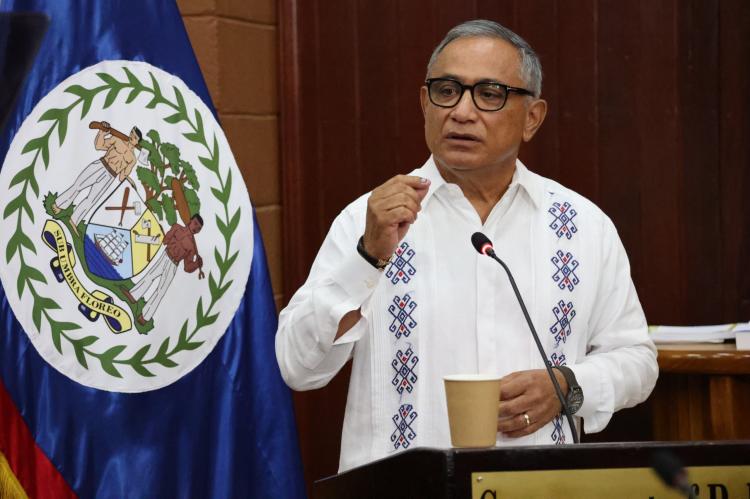Half a Million, No Pay? PM Spins Court Ruling as “Just Precedent” — But Farmers Still at Risk
Briceño insists BSI won’t collect damages from BSCFA, but without a binding waiver, the court judgment remains a live debt — and a powerful precedent for future corporate crackdowns.
📰 HEADLINE:
By: Omar Silva I Editor/Publisher - Investigative Desk
National Perspective Bz | Digital 2025
Belize City: Sunday 10th August 2025
The High Court’s ruling against the Belize Sugar Cane Farmers Association (BSCFA) and two of its members is clear: over $520,000 to BSI/ASR, $43,000 to BELCOGEN, plus 6% annual interest from January 2022 and court costs. A legal debt now exists.
But Prime Minister John Briceño says there’s nothing to worry about.
Speaking this week, he told reporters that the government will not be paying BSI — and claimed the company never intended to collect the money in the first place. Instead, he says, the whole lawsuit was a “strategy to set precedent” in the courts, not to recover damages.
From Indemnity Promise to Political Pivot
Back in December 2021, during the three-day blockade that triggered this case, Briceño made a quiet but powerful promise to the farmers: an indemnity from the Government of Belize. This was a lifeline for the BSCFA, who feared a corporate lawsuit.
“Move the trucks, we’re going to give you an indemnity,” Briceño said he told the association.
That promise was never tested in court — but it was clear enough: if the farmers lost, the government would cover them.
Now, three years later, Briceño is publicly pivoting. He says BSI assured him they have “no interest in collecting money” and only wanted the court to set a legal precedent. He added that the government will not cover similar actions in the future.
Legal Reality vs. Political Talk
Here’s the problem:
- A court judgment is enforceable debt. Unless BSI/ASR files a formal waiver or settlement in court, they retain the legal right to collect — today, tomorrow, or years from now.
- Political assurances are not binding in law. Management changes, corporate strategies shift, and “no interest” can quickly turn into active collection.
- The government’s refusal to pay under the indemnity could leave farmers exposed to the full weight of the judgment.
Why Sue at All?
If BSI truly never intended to collect, why go through a multi-year High Court battle — with legal costs, evidence, witnesses, and cross-examination — just to set “precedent”?
The answer lies in the ruling itself:
- This is the first case in Belize where damages were awarded for the tort of unlawful interference with economic interests.
- The ruling now stands as a powerful corporate weapon. Any future blockade — even on public roads — can be met with the same legal strategy.
- This legal precedent strengthens ASR/BSI’s leverage over all cane farmer associations.
Overreach and Reduced Damages
The judgment also exposed cracks in BSI’s claims.
- They sought $1.5 million in damages.
- The court cut that by nearly two-thirds, awarding just over $560,000 total to both companies.
- The reduction came because some losses could have been avoided — BELCOGEN had reserve fuel, and BSI could have mitigated damages but didn’t.
This reduction suggests the court wasn’t fully convinced of every claimed loss — and in law, such doubt should normally favor the defendant. Instead, the farmers still bear full legal liability.
Cane Belt Politics
The Prime Minister’s new stance — refusing to pay under the indemnity — is a political gamble. The cane belt is the PUP’s electoral fortress. Briceño himself, Agriculture Minister Jose Abelardo Mai, and other northern MPs rely on this region for political survival.
If farmers feel abandoned, this could backfire badly in the very heart of the PUP’s power base.
Final Word: Precedent Cuts Both Ways
Briceño calls this case “just about precedent.” But for the farmers, the precedent is that a government senator can argue for a foreign multinational against Belizeans, win a judgment, and then have the government walk away from its own promise to protect them.
If this is the precedent, the cane belt has just been warned:
- The government will step in to calm a crisis — but may later step back when it’s time to pay.
- Corporate legal strategies will now carry the stamp of High Court approval.
- Farmers could be left in the hole, holding the bill for blocking roads they do not own.
The Prime Minister says the money will never be collected. But unless that’s put in writing and filed in court, the debt is real. And in politics — as in law — the one who holds the paper holds the power.
- Log in to post comments

